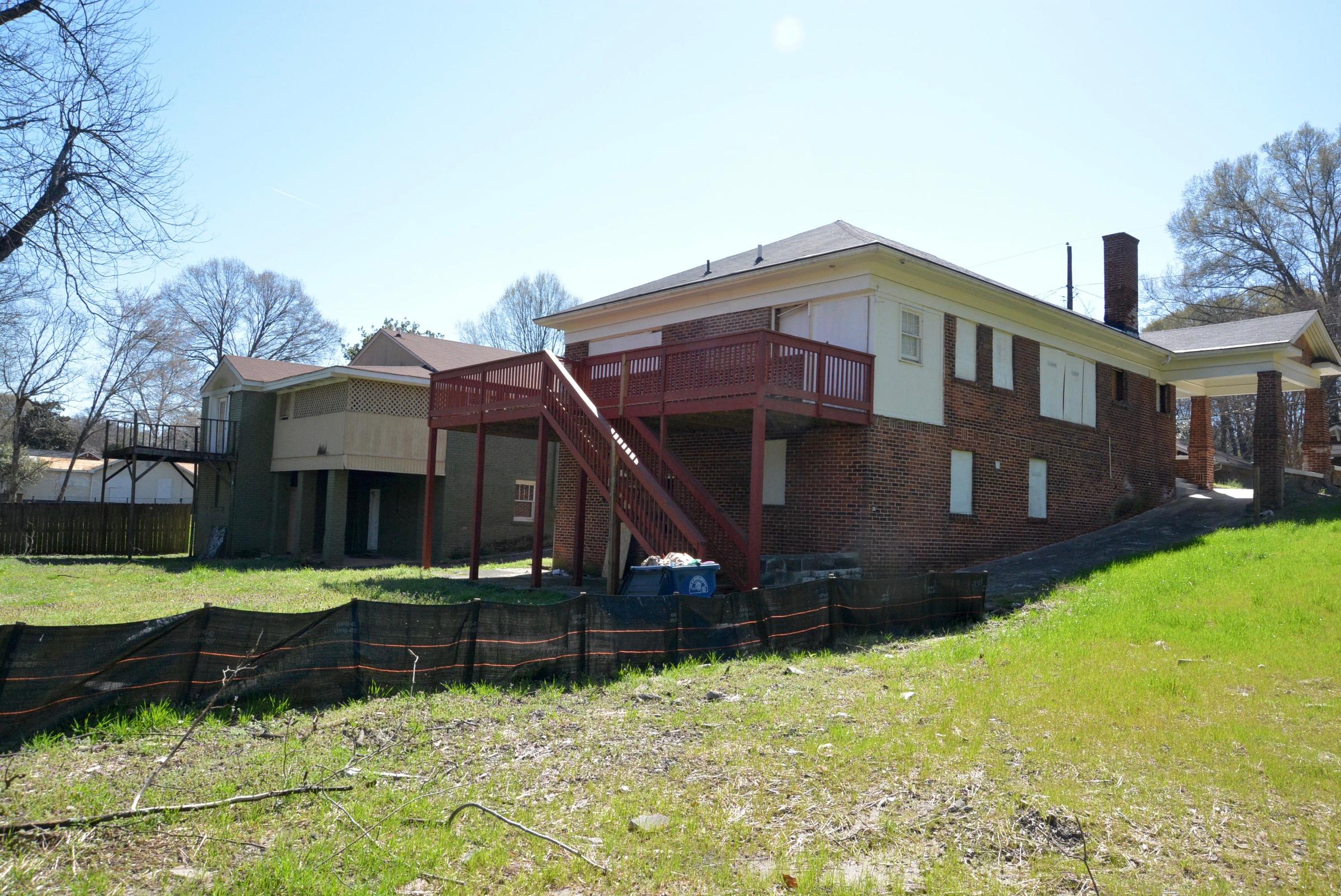Residents Want City-Owned Peoplestown Properties Demolished

Alison Guillory / WABE
Tanya Washington lives on a block that the city of Atlanta wants to turn into a pond.
The city’s plan is to eventually build a stormwater detention pond to alleviate flooding, much like an already existing one in the Historic Fourth Ward park.
More than 20 households on one block in southeast Atlanta’s Peoplestown neighborhood have already sold their property to the city of Atlanta. But residents, like Washington, who have stayed say people are taking shelter in the empty homes.
Washington is no supporter of the plan to begin with.
“It disturbs me that they took those homes in the first place,” she said. “So my push is to get the city to do what it’s supposed to do is in the aftermath of them having done something that I don’t think they should have done.”
She’s also not a fan of someone living in the basement next door.
“It doesn’t make me safe to come home and know that there are people who are occupying an abandoned house,” Washington said.
“Absolutely, with properties like this, we don’t want to leave them empty for an extended period of time,” said Lilian Govus with Atlanta’s Watershed Department. “As quickly as we can move, we’ll move at that speed.”
She said the asbestos abatement on the homes in question was completed recently.
“We expect demolition to take place on those two properties by the beginning of next week,” Govus said.
She said rainy weather and permitting slowed down the process, but that the city will re-secure and board up the house Washington says is occupied immediately.
While that may solve one problem, Washington and others say they feel a tension that isn’t about any one house or block. There’s another abandoned house on the other side of Washington’s house — one the city is not responsible for.
Clay, a neighbor who preferred to only be identified by her last name, lives across the street from Washington, but not on the block the city is buying up.“I got some people that live in back of me — just squatters,” she said.
“They don’t have any utilities back there,” Clay said. “They asked me not to call the police, but I don’t think it’s right for them to be staying back there.”
She can see at least two more boarded up homes from her front door — examples of worst case scenarios, she said, for what happens to abandoned homes in the neighborhood.
“They actually tore that house up,” Clay said. “I mean just human feces everywhere. Tore the drywall out. Just made a mess.” She said if she’d had the chance to sell to the city, she would.
“The city needs to do their job,” she said, clutching a small dog. “They need to clean, up, because we pay taxes. It’s so dirty around here sometimes.”
Clay’s brother, Toliver Riley, stepped out onto their porch. He had another perspective entirely on abandoned houses in the neighborhood.
“Let’s get this straight; I think it’s more important that these people have a place to stay than a retention pond,” said Riley, who moved here from Detroit.
Like others in the neighborhood, Riley questions the city’s recent interest in solving flooding issues.“This has been a problem that has been allowed to occur over a period of time,” he said. “This is nothing new.”
According to the watershed department, 80 miles of sewer lines converge in the neighborhood. Heavy flooding has caused some residents to sue, and the $66 million plan to buy up the block and build a pond was the city’s response.
“Because of the mayor’s vision and commitment to making a solution, we are going above and beyond,” Govus said, “and rather than leaving it as a place that floods and then we clean up, and then it floods and then we clean up, we’re offering a long term solution to the problem.”
She said though the city is under no obligation to maintain overgrowth on those lots, they will do so until construction begins — and that could be a long time. Last October, the city made a deal with the block’s oldest resident, 93-year-old Mattie Jackson, saying she could stay in her home indefinitely.
“This is prime property,” Clay said. “We’re just two miles from downtown. I think it’s in the master plan that they want this area because if you go on up the street, you’ll see little mini-mansions built up there.”
She worries that in the future, she’ll be taxed out of her home, and maybe the city. Washington is on the same page.
“I cannot find a comparable house in a comparable neighborhood for what I obtained this house for,” Washington said. “Everything in this city [has] gone up.”
Residents like Clay and Washington say the empty homes are one thing, but fears of displacement due to development and new-comers are, for them, the underlying issue.
9(MDAxODM0MDY4MDEyMTY4NDA3MzI3YjkzMw004))








